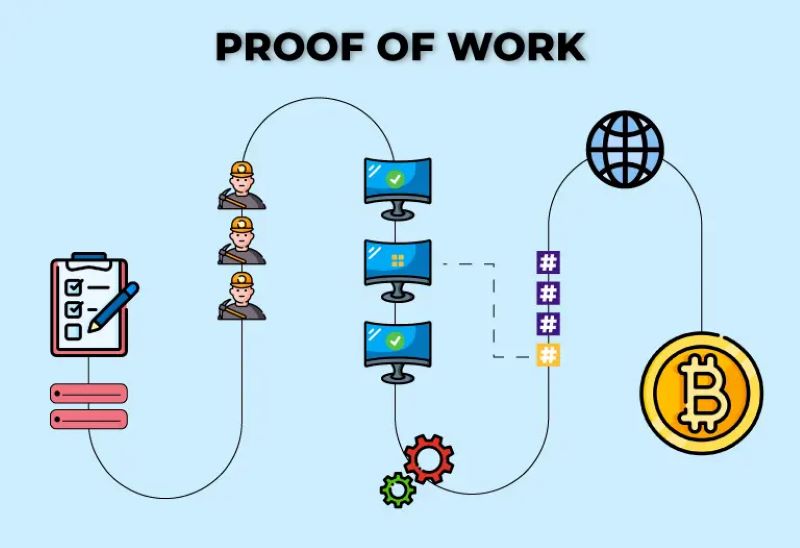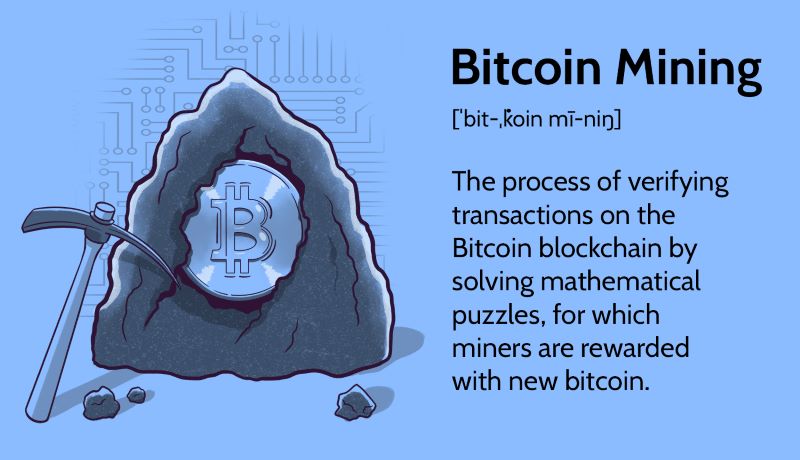Eager to dive into the world of Bitcoin mining? This comprehensive guide walks you through the essential steps to get started, from selecting the right hardware and joining a mining pool to understanding the factors that influence profitability. Learn how to start BTC mining with us!
What is Bitcoin Mining?
Bitcoin mining, a fundamental process in the Bitcoin network, involves solving complex mathematical problems to verify and add new transactions to the blockchain. This process also creates new Bitcoins, rewarding miners for their computational efforts.
Understanding the Fundamentals of Bitcoin
Bitcoin, a decentralized digital currency, operates on a technology known as blockchain. The blockchain is a distributed ledger that records all Bitcoin transactions, ensuring transparency and security. Every block in the blockchain contains a set of transactions, and miners are responsible for verifying and adding these blocks to the chain.
The Role of Miners in the Bitcoin Network
Miners are essential to Bitcoin’s security and integrity. They perform the computational tasks necessary to validate transactions and secure the network. When a transaction is broadcast to the network, miners receive it and group it with other transactions into blocks.
The Concept of Proof-of-Work and Mining Difficulty
Bitcoin uses a consensus mechanism called Proof-of-Work (PoW). Miners compete to solve complex mathematical problems, and the first miner to find a solution adds the block to the blockchain. The difficulty of these problems is adjusted automatically to ensure a consistent block creation rate.

The Concept of Proof-of-Work and Mining Difficulty
How to start BTC mining
Bitcoin mining can be a complex undertaking, requiring specialized hardware, software, and a thorough understanding of the process. Here’s a breakdown of the essential steps:
Choosing the Right Mining Hardware
The cornerstone of any successful Bitcoin mining operation is the mining hardware. This specialized equipment, designed for high-performance computing, is responsible for solving complex mathematical problems that validate Bitcoin transactions.
The choice of mining hardware significantly impacts profitability and efficiency. A range of options are available, each with its unique characteristics and performance capabilities.
- Application-Specific Integrated Circuits (ASICs): ASICs are purpose-built chips specifically designed for Bitcoin mining. They offer unparalleled speed and efficiency, making them the dominant choice among serious miners. However, ASICs are often expensive and require specialized knowledge for setup and maintenance.
- Graphics Processing Units (GPUs): GPUs, traditionally used for gaming and graphics rendering, can also be utilized for Bitcoin mining. While they are less specialized than ASICs, GPUs offer a more accessible entry point for beginners and can be repurposed for other tasks when not mining.
- Field Programmable Gate Arrays (FPGAs): FPGAs are versatile chips that can be programmed for a wide range of tasks, including Bitcoin mining. They offer flexibility and potential for customization but generally lag behind ASICs in terms of performance.
The selection of mining hardware should be guided by factors such as budget, mining experience, desired hashrate (the speed at which a miner can solve cryptographic problems), and power consumption. A careful evaluation of these factors is crucial for making an informed decision that aligns with your mining goals and resources.
Selecting a Reliable Mining Pool
Bitcoin mining is a competitive field with thousands of miners vying for the opportunity to add blocks to the blockchain and earn rewards. To increase their chances of success, miners often join mining pools, which distribute the workload and share the rewards among participating members.
Choosing a reliable mining pool is essential for a smooth and profitable mining experience. Here are some key factors to consider:
- Payout Frequency: Opt for a pool that offers frequent payouts, ensuring regular income from mining efforts.
- Fees: Pay attention to the fees charged by the mining pool, as they can impact profit margins.
- Pool Hashrate: A pool with a high hashrate increases the chances of finding blocks and earning rewards.
- Transparency: Transparency in pool operations, including payout structures and fees, is vital for building trust and ensuring fair treatment.
- Reputation: Researching the pool’s reputation and reading reviews from other miners can provide valuable insights into its performance and reliability.
Setting Up Your Bitcoin Mining Software and Wallet
Once you have acquired the necessary mining hardware and chosen a reliable mining pool, you need to set up the software and wallet for your mining operation.
Mining Software: Mining software is essential for managing your mining hardware, connecting to the pool, and receiving payouts.
Popular options include:
- CGMiner: A versatile and widely-used mining software known for its stability and performance.
- BFGMiner: A highly efficient mining software designed for advanced users.
- NiceHash: A user-friendly platform that allows you to mine various cryptocurrencies and earn Bitcoin.
- Bitcoin Wallet: A Bitcoin wallet is crucial for storing the Bitcoin you mine.
Factors to Consider Before Mining Bitcoin
- Software Wallets: Software wallets, stored on your computer or mobile device, offer easy access and flexibility.
- Hardware Wallets: Hardware wallets, physical devices that store your Bitcoin offline, provide enhanced security.
- Exchange Wallets: Exchange wallets, provided by cryptocurrency exchanges, allow you to buy, sell, and trade Bitcoin.
Setting up your mining software and wallet involves installing the software, configuring settings, and connecting to your preferred mining pool. Carefully follow the instructions provided by the software and wallet providers to ensure proper setup and avoid any potential issues.
Bitcoin mining can be a challenging yet rewarding endeavor. By grasping the fundamentals, choosing suitable hardware, joining a reliable mining pool, and carefully considering key factors, you can confidently embark on your Bitcoin mining journey. Remember, knowledge and preparation are the keys to success in this field. Best of luck as you explore the world of Bitcoin mining!
Stay ahead in the crypto game! Follow Dynamic Crypto Network for the latest insights and updates



